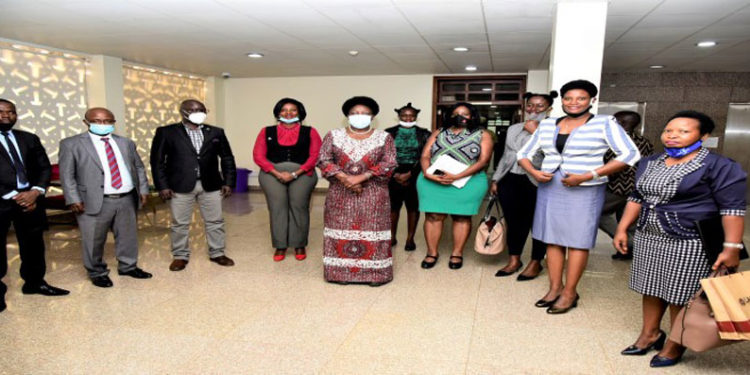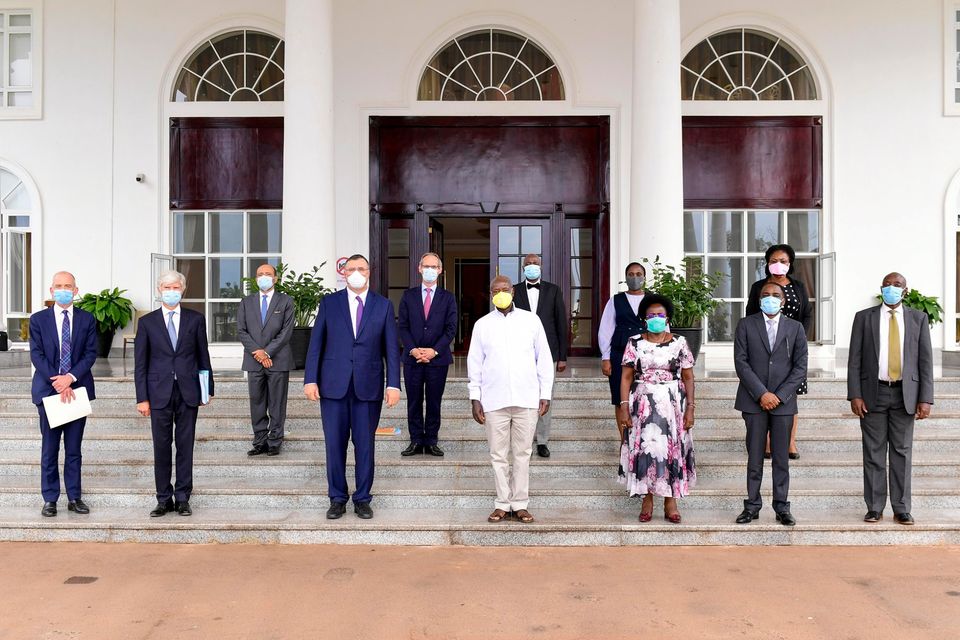Legal practitioners under the Legal Aid Service Providers Network (LASPNET) have sought intervention of Speaker Rebecca Kadaga in the processing of the National Legal Aid Bill which they say is long overdue.
The members told Kadaga of how they have approached critical players in the country, including the President but that the delay by government to table the Bill in Parliament has left them with no choice but to rally behind a private member to be able to draft the Bill.
LASPNET is supporting the Gulu Municipality MP, Lyandro Komakech to draft the Bill.
Practitioners who were meeting the Speaker on Friday, 11 September 2020 are concerned that the number of Ugandans who due to economic constraints cannot access legal services is on the rise thus posing a threat to the right to justice.
“Research conducted in 2016 shows that over 80 per cent of people in Uganda especially women and youth are prevented by economic obstacles from accessing justice and from defending their property and rights” said Dr Sylvia Namubiru, the Chief Executive Officer, LASPNET.
Dr Namubiru said that majority of people in the 80 per cent are women, children, refugees, persons with disabilities, adding that of the 20 per cent who can afford services of a legal practitioner only, five per cent go to court.
This, according to Aaron Besigye, the Coordinator for Justice Centres Uganda, is a reason why Uganda registers numerous cases of land grabbing and evictions. “Majority of the people who are being evicted are those who cannot afford legal services and so if this Bill is enacted, we can solve a lot of land wrangles,” he said.
The Vice President of the Uganda Law Society, Ms Pheona Wall, noted that the increased congestion in prisons is also a concern to the legal fraternity adding that it should press government into action.
“Research shows that we have 28,000 people on remand and the occupancy in Luzira prison is way over the capacity at 319 per cent,” said Wall adding that “most people have been on remand longer than the sentences they had”.
LASPNET also decries the fact that provision of legal aid has over time been left to donors whose support is temporary and biased to specific areas, thus excluding other pivotal areas. “We are 55 non-government organisations providing legal service but the challenge with non-state legal providers is that they are not sustainable and are biased. You find FIDA is concentrating on gender, another NGO dealing in labour issues, in addition to the fact that their funding is on and off” said Namubiru.
The Speaker said she has personally waited on seeing government provide legal aid in vain. She observed that issues of social wellbeing are often ranked low in government’s prioritisation. “I think government is less interested in the social wellbeing of people. We started talking about legal aid in 1998 but government has not picked interest,” said Kadaga.
She narrated her scenario in 2007 when the United Nations Population Fund almost withdrew funding for female genital mutilation because government had shown no interest. “Even after we intervened, government allocated only Shs 200 million towards advocacy for female genital mutilation which figure has never been increased. So, if we want legal aid, we have to drum a lot about it,” Kadaga advised.
Do you have a story in your community or an opinion to share with us: Email us at editorial@watchdoguganda.com













